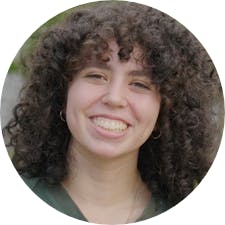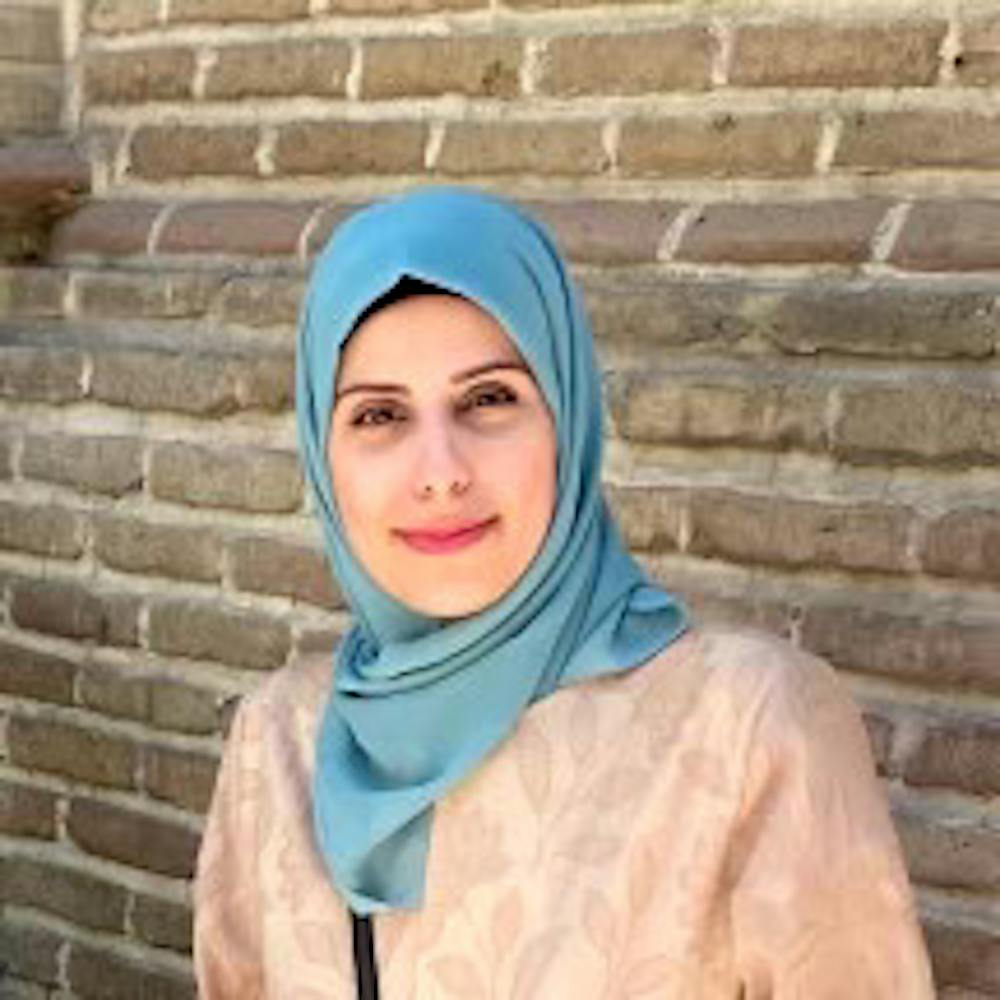As the school year begins, Zahra Moeini Meybodi has started her role as the new Muslim chaplain and interfaith advisor at Middlebury. Born in Tehran, Iran and raised in New York City, Moeini grew up in the most diverse county in the United States, a welcoming community where she began her religious journey. Later on, Moeini attended CUNY Hunter College for her bachelor’s degree in religious studies before pursuing a master’s degree in the same subject at the University of Chicago.
After receiving her Masters of Arts in Religious Studies, Moeini began teaching courses in Religious Studies at Hunter College. Moeini said she originally envisioned herself in more of an academic role for her future, focusing on the bigger questions she had asked herself so often in the classroom when she was younger. However, when the opportunity to come to Middlebury as a religious advisor arose, she could not resist applying.
“At some point, I also wanted to explore the study of religion in practice and in a community organizing capacity, because I had experiences in both those areas on campuses and beyond campuses. So when I saw the opportunity to work at Middlebury, I was very much interested in pursuing it,” Moeini told The Campus.
Although the role is not strictly academic, Moeini said she still hopes to bring in more conversations about the philosophical questions of religion to Middlebury’s religious community and discuss the relationship between faith, spiritual life and contemporary issues.
Along with teaching, Moeini helped co-found NYC Muslims Discuss, an online platform built for addressing issues facing the Muslim community. This experience helped Moeini hone her skills in organizing events and creating open, engaging discussions.
“I felt a lot of people benefited from it… Muslims who grow up in the US communicate with the contemporary vocabulary we use regarding mental health and psychology, but they also want that language to be in conversation with, and informed by, the religious and spiritual concepts that are part of their other identities, for example, their Islamic identity,” Moeini said.
These are the types of conversations Moeini hopes to bring to Middlebury through her work here. However, Moeini will go further than just being the Muslim chaplain — she is also the interfaith advisor to the MOSAIC House, a residential space for students looking to explore their religious and spiritual journeys, and advisor to the Muslim Student Association (MSA).
“While we at the interfaith house will miss Saifa [former Muslim chaplain and interfaith advisor], these first few weeks with Zahra have been lovely. She has such a warm, funny, and thoughtful presence and I am very excited to see what this year will bring,” Lea Hohenlohe ’24, a resident of the MOSAIC house, told The Campus.
As an interfaith advisor, Moeini, along with Chaplain of the College Mark Orten, will co-lead weekly discussions in the MOSAIC House regarding spiritual and religious topics. Rather than focus solely on Islam, Moeini said she believes that having conversations outside of religion is essential to improving spiritual health. These conversations highlight the larger questions necessary for not only making personal connections, but also for further community building at Middlebury. .
While the college prides itself on being a diverse and inclusive community, the Muslim Student Association’s prayer space’s surrounding area was desecrated during the month of Ramadan in spring of 2022 while two members were inside. The perpetrator, or perpetrators, poured urine right outside of the space before attempting to break into the room, according to an email sent to the group’s members. The perpetrators were unable to break in as only approved members have access to the space. They were never publicly identified.
“Muslims face discrimination, bias, and violence in a myriad of ways, and these kinds of incidents trigger the fear and belief that Muslims are unwelcome, are other, and do not deserve safety and dignity. The desecration of a space that is dedicated for prayer is an abhorrent violation not only of our institutional values but also of basic human decency,” wrote the Community Bias Response Team and Dean of Students Derek Doucet in an email to the community following the incident.
When asked about this instance, Moeini said her first instinct was to condemn the injustice, and then approach the situation with compassion.
“What happened was unfortunate and unacceptable, and needs to be remedied structurally in the school, especially when it comes to potential expressions of Islamophobia,” she said. “It's always good to start off with actively recognizing and condemning the harm and being aware of its effects on the Muslim community. It's also necessary to have a conversation about where these harms come from. For example, do these incidents happen due to misperceptions or misinformation about the Muslim community or otherwise of reckless hatred?"
Moeini added that it is important to have conversations about this sort of behavior and understand why such events occur – guided by a sense of justice, compassion, and a desire to help us harmonize as a community.
In 2019, the Institute for Social Policy and Understanding released a report detailing the rise of Islamophobia in the United States since the 9/11 terrorist attack. Moeini said while compassion is essential, it is also important to acknowledge the danger of Islamophobia, not just on the global scale but locally, too.
“I wonder how that can be systematically engaged and addressed in school, whether that is having conversations with the DEI, Scott Center, or both in collaboration,” Moeini said. Having discussions about these types of incidents on campus, informing students about common Muslim misconceptions/stereotypes and addressing hatred head on are other solutions, Moeini added..
New York City to Middlebury is a big move, but Moeini said she is excited to embrace the small, more intimate community here in Vermont. “It allows you to really experience the questions that are gonna go on, and also a smaller knit community makes you build stronger connections,” she said.

Orly Berke '25 (she/her) is a News Editor.
This is Orly’s second year as news editor with previous experience as a staff writer.
She is a joint political science - art history major. Outside of academics she is a member of the College Democrats as well as Darkroom club. She enjoys watching movies, cooking, and spending time with friends, oftentimes in Proctor, her favorite dining hall.




